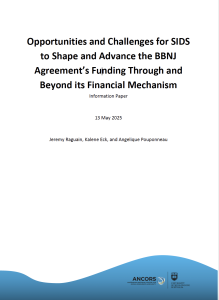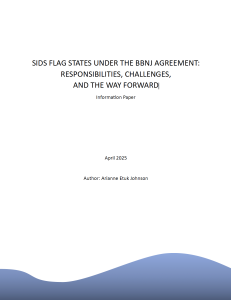
Financing and Institutional Pathways for Effective Finance of Capacity-Building and Transfer of Marine Technology for BBNJ
This multi-regional webinar explores how we design and finance the institutional architecture necessary to deliver on Capacity-Building and Technology Transfer (CBTMT) package of the BBNJ agreement.


